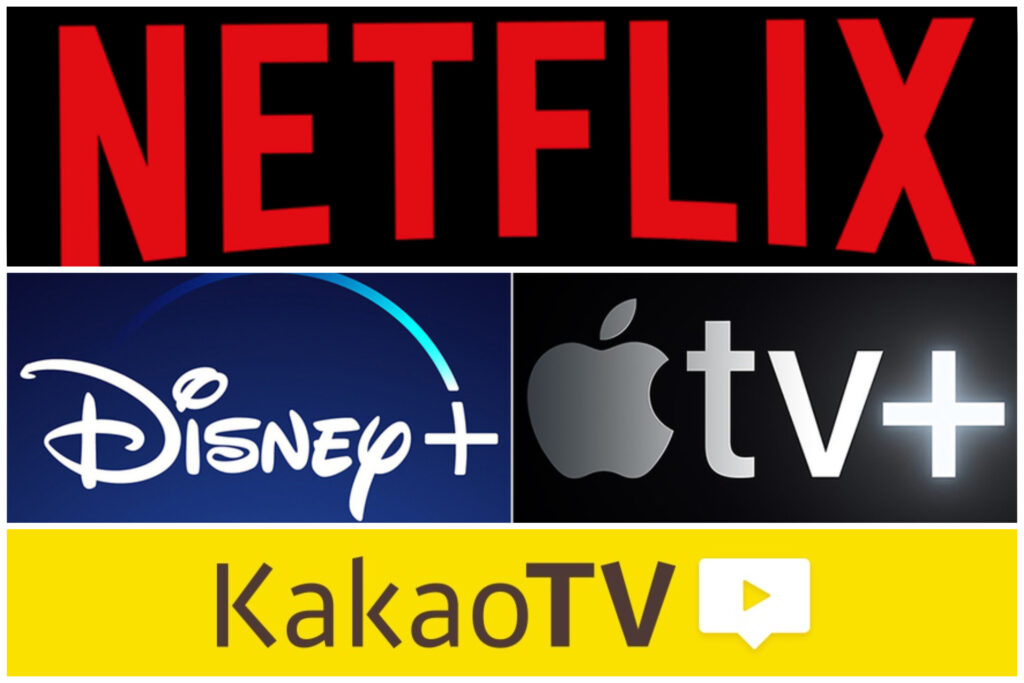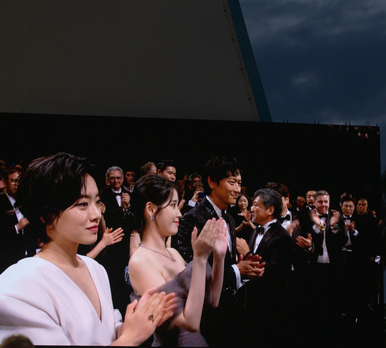
From an extremely subjective point of view, during the pandemic, I actually thought the space of a movie theater would be ruined. This is because the theater, which was one of the playgrounds for the entire nation only three years ago, was seen to fall at the same time as the global dark period of pandemic. Under the proposition of social distancing, the theater has been reduced to a place where it should not be. It was even more so because the space structure of the theater, where the anonymous public was forced to gather in an enclosed space, had to suspend operations and quarantine as soon as one confirmed case occurred. So, it seemed like the theater would become a relic-like space that remains only in our memories. At that moment, the OTT platform rose sharply. It has grown to eat not only theaters but also other traditional media such as TV. While the theater was shunned or blocked by the audience, the already completed films sold copyrights to OTT companies and were first released there, not theaters. The drama, which was exclusive to TV, flew with the original series label on OTT, which guarantees more freedom of expression and creation. In other words, if there is OTT, there is no need for theaters and TV. OTT removed the time constraints derived from theaters and television. It even has the convenience of viewing it on time for consumers. Everyone in the world, including industry officials, predicted the dominance of OTT capital. I really thought it was going to be like that.

But the theater retained its last breath. And he jumped back up like a zombie. Crime City 2 served as a tow truck. The movie surpassed 10 million viewers on June 11 (based on the integrated computer network of the Korean Film Council). This is the first time in about three years since director Bong Joon-ho’s 2019 film “Parasite” exceeded 10 million viewers. Director Kang Woo-suk’s 2003 film Silmido has become the 18th film in Korean film history to attract 10 million viewers since it cut the first tape of 10 million viewers. The number of viewers in “The Outlaws 2” is quite significant. For now, there is a symbolism of “April 18,” which was lifted about two years and a month after social distancing measures were implemented. How tight we’ve all been, including myself! Even if you don’t put it into words, some sense of freedom must have been infested like desire. “The Outlaws 2” was released on May 18, just a month after that.
When the movie is boring, simply lifting the distance cannot have attracted a huge audience of 10 million. Crime City 2 has enough fun not to think of running time as a waste of time while maintaining a wonderful custom as a commercial film. It is a kind of error to recognize that the movie itself will be boring just by the fact that the first movie, “The Crime City,” which was released in 2017, mobilized more than 6.87 million people. In addition, the expression of some suppressed desire mentioned earlier added strength. H, To add one more thing, the recent “Gu” craze (played by actor Son Seok-gu in the drama “My Liberation Diary”) must have helped attract 10 million viewers in a heartbeat. Another good news occurred when “The Outlaws 2” was off to a good start at the same time as its release.

It was none other than the propaganda and achievements of Korean films at the Cannes Film Festival. Japanese director Hirokazu Koreeda held a megaphone, but Song Kang-ho, the winner of the Best Actor Award for “Broker,” which must be a Korean movie, encouraged it. In addition, director Park Chan-wook, who is at the center of the revival of Korean films along with “Broker,” won the Cannes Film Festival’s Best Director Award for his new film “Decided to Break Up.” At the opening of the Cannes Film Festival, “The Outlaws 2” is being released at the same time, and news of Song Kang-ho and Park Chan-wook’s simultaneous awards was reported at a time when he fired a box office signal. Moreover, Lee Jung-jae’s directorial debut film “Hunt,” which shook OTT viewers around the world with the series “Squid Game,” also drew attention in the non-competitive category at the Cannes Film Festival. Has there been a better time in the history of the Korean film industry? No, if not necessarily, it’s hard to deny that this is a very good sign.It was described as a good sign because during the pandemic, the existence of the theater itself was threatened by the threat. Sales of the Korean theater industry reached $1 trillion in 2019, before the bad news of the pandemic. Sales in 2020 after the pandemic declaration fell to $50 million. It experienced a decrease in sales by nearly 73% compared to the previous year. The pandemic continued in 2021, up 14.5% from 2020, but around $52 million. There have also been rumors that all large theater chains are trying to sell. In the past, the theater industry itself, which was well-known for its structure of collecting huge profits, including goose that lays golden eggs, that is, going to the movies to buy food and beverages such as popcorn and beverages, was reeling. On top of that, the OTT platform capital mentioned in the beginning attracted existing industry workers, and the prediction that OTT will become a complete alternative also further fueled the crisis of the survival of the theater. I also buried the memory of the environment of the theater on the other side of the past. I’ve gotten used to watching movies and series with earphones (or headphones) sound in my palm-sized mobile phone. Then, I thought I should go to the theater, and I made a hasty judgment that I didn’t have to go there in a hurry.
JENNIFER KIM
ASIA JOURNAL



